Horizon Call of the Mountain review: VR never looked so good
Robo-dino spin-off is a stunning showcase for PSVR2
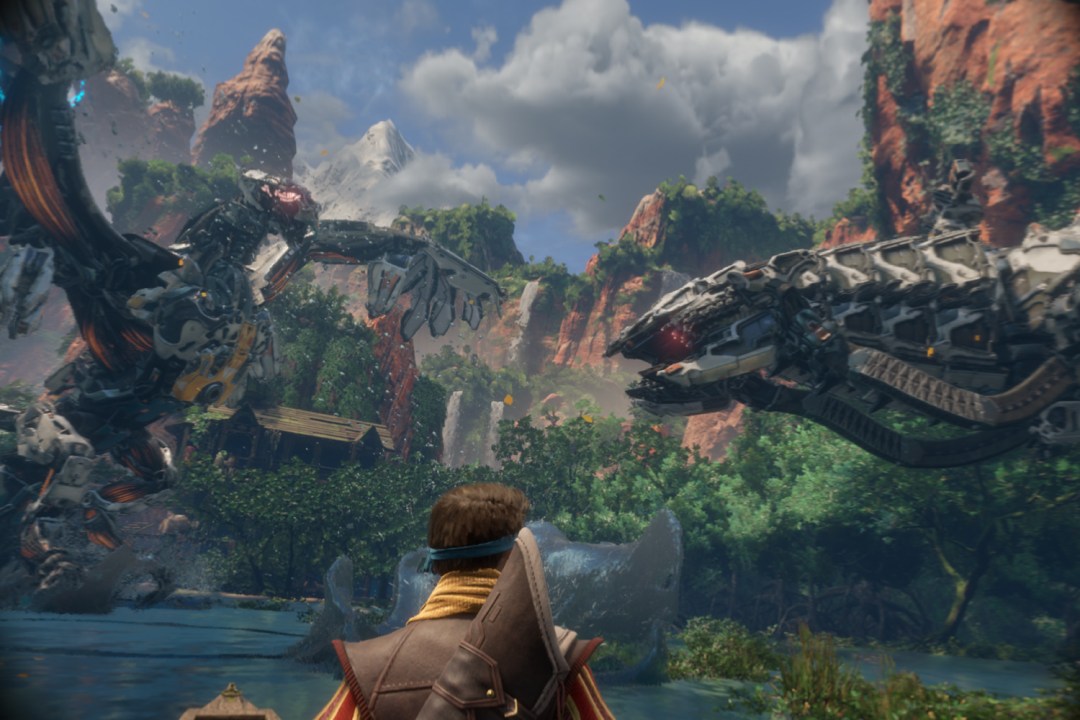
Every new expensive piece of hardware needs a new toy to make it really shine, and that’s exactly what Horizon Call of the Mountain sets out to do for PlayStation VR 2.
This launch title has instant appeal for fans of Guerrilla Games’ successful Horizon series, while those who lack the time to invest in open world games get a fresh way to approach its post-apocalyptic future where dinosaur-like machines roam the earth and humanity has returned to hunter-gatherer tribe traditions.
Compared to the first generation of VR launch titles (which were little more than glorified tech demos), this is also considerably a more substantial campaign – one that leverages the hardware not just in its gorgeous visuals but also in giving your arms plenty to do. But does that make it a killer app for PS VR2?
Climb every mountain
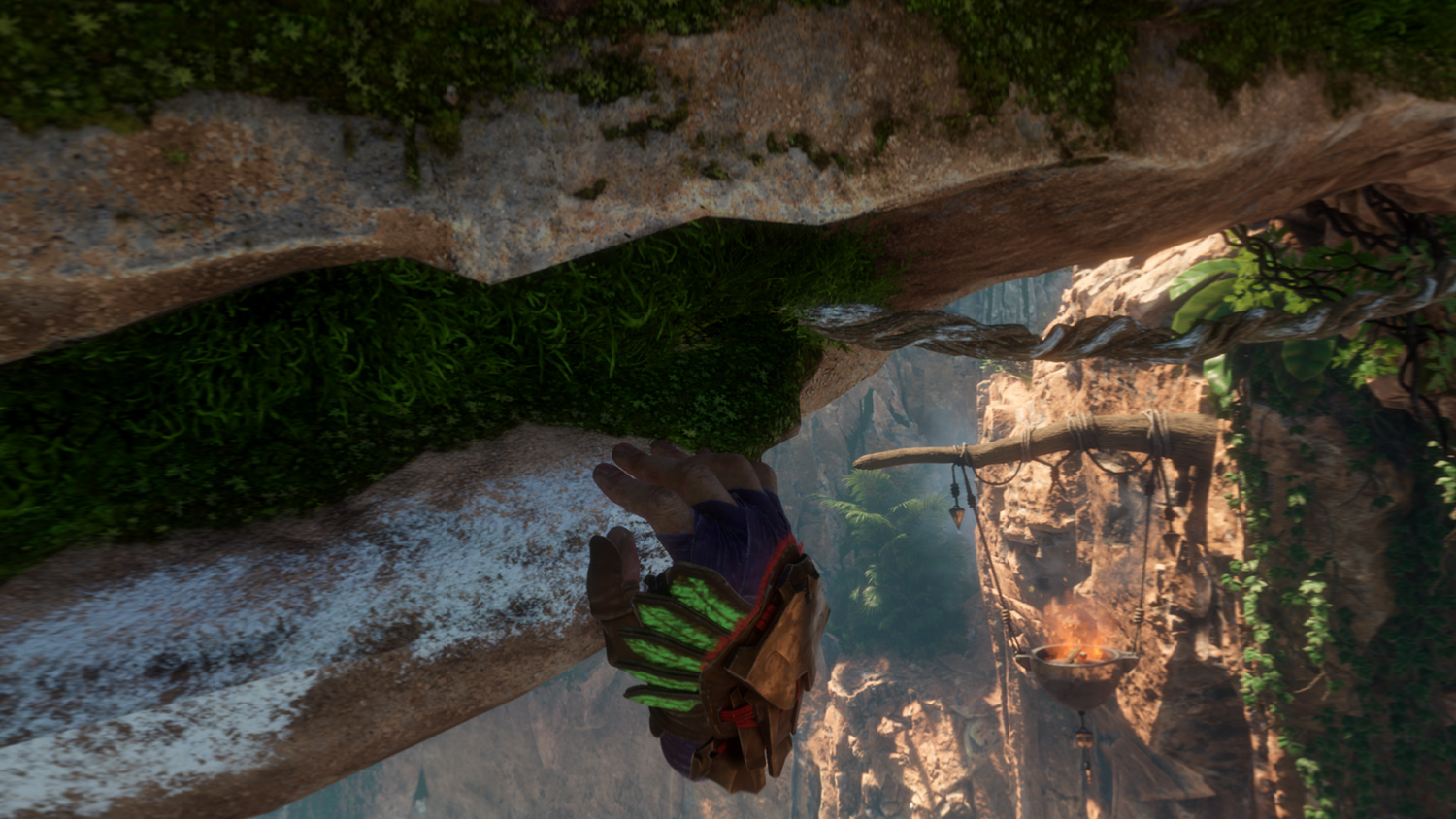
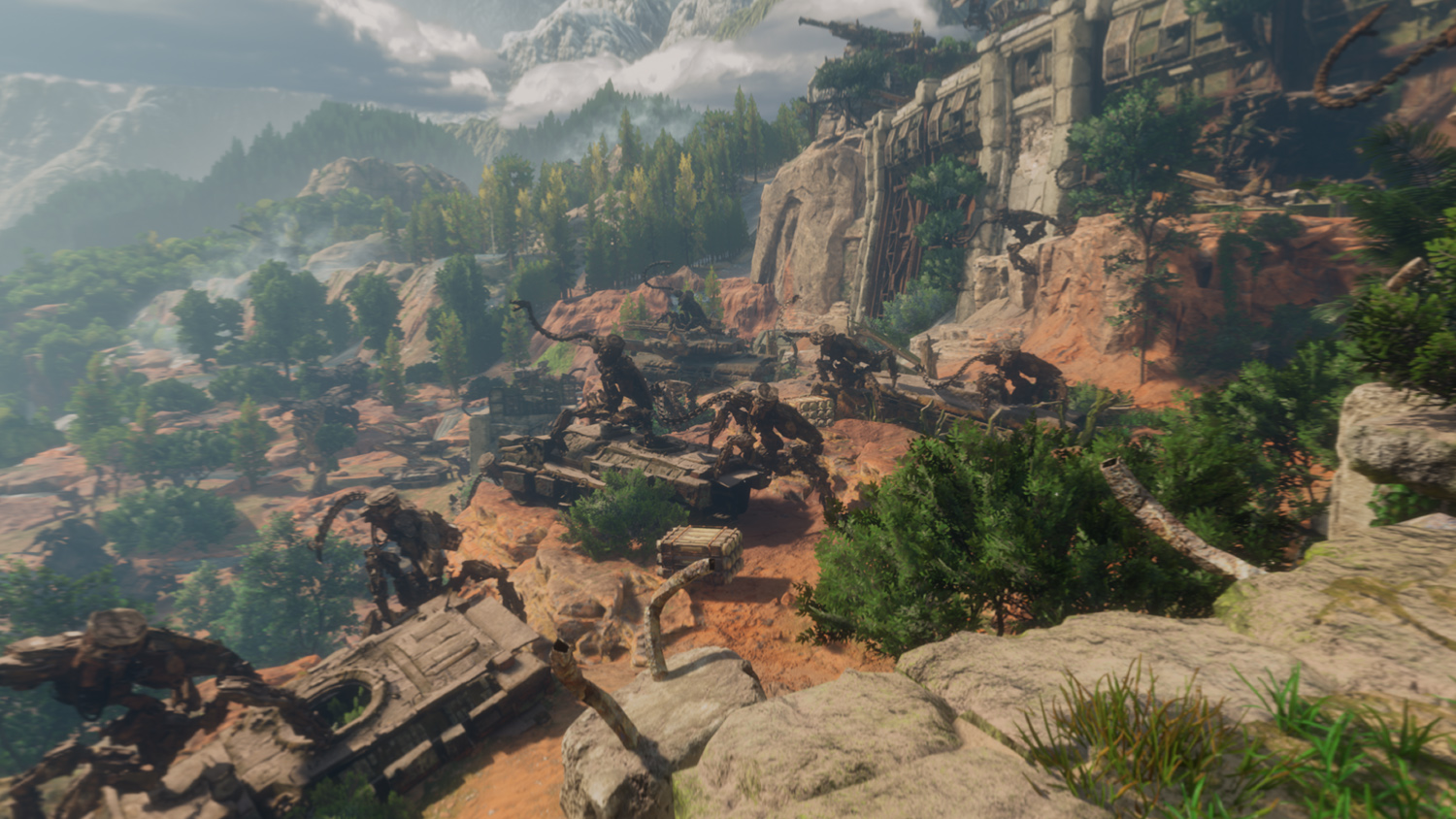
From the outset, when you’re in a boat floating down a jungle stream surrounded by machines, Call of the Mountain takes every opportunity to make your jaw drop. But while starting out like a theme park ride (albeit one where your hand can reach out and touch the water), it makes you work it to see the sights.
Player character Ryas is a disgraced soldier given the chance to atone for his past by investigating a potential new threat up in the mountains. Cue a lot of climbing. Even playing for 20 minutes at a time this is a physically tiring game, as while the way forward is often linear and clearly marked, your arms are constantly reaching out as you look for ways to ascend. You’d think getting down would be trickier, but fast travel takes you swiftly back to the game’s hub.
In fairness, the new tools and mechanics unlocked and crafted along the way offer some variety, such as a pair of pickaxes or a grappling hook. The surfaces you climb go from sides of a mountain to man-made structures to even those iconic Tallnecks, but eventually you’ll come to another wall and sigh, “Not again”.
The promise of breathtaking sights, from lush jungles to frosty peaks, just about sweetens the pill – and boy does it make the most of the draw distance. But much like the star of the mainline series, Ryas also has a knack of commenting on every action and telegraphing what to do next. We’d appreciate more quiet time just taking in the vistas, along with the little details like seeing his fingers turn red when up in colder temperatures.
Put a bow on it
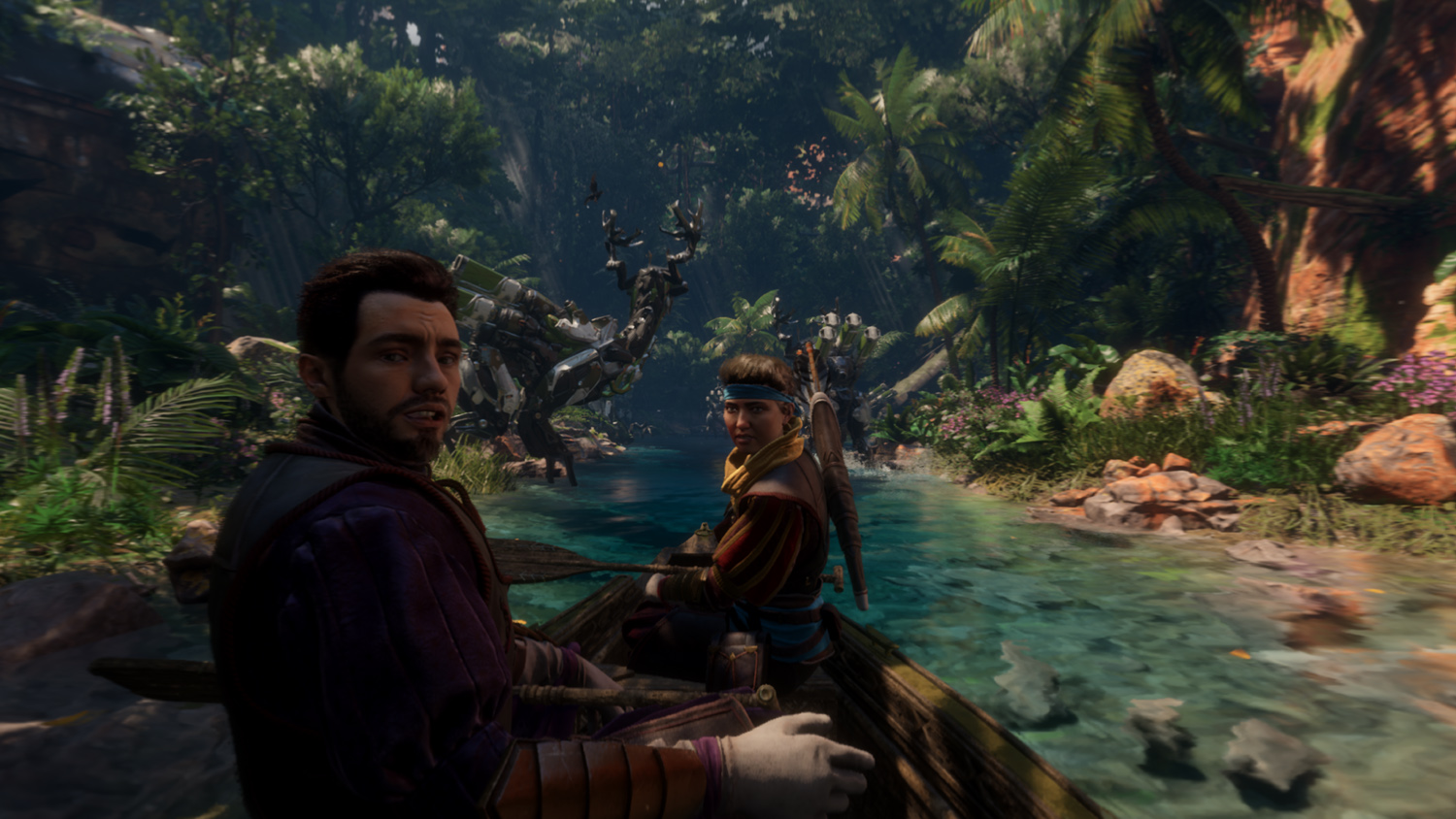
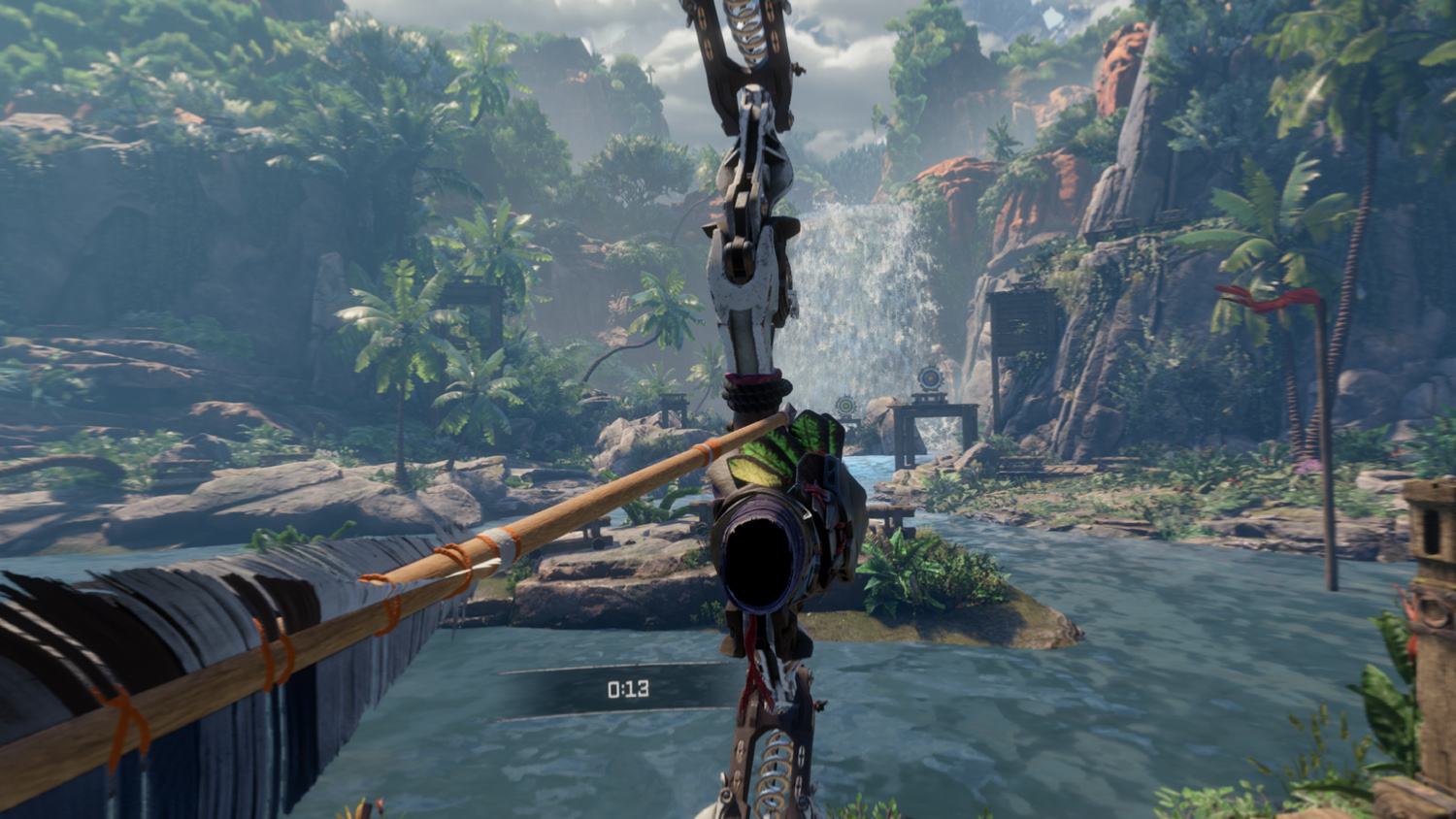
When you’re not climbing, your hands are given plenty more to do, especially at the start. There are playful objects to mess about with like a pair of maracas or pottery you can smash like a vandal.
You can even walk by swinging your arms and holding a button down for each controller, though frankly we appreciated the option to just use stick controls. Jumping also requires swinging your arms back at specific marked points, with the action slowing down for dramatic effect – and so you have time to react.
The other key mechanic is combat, and while there is ultimately a human threat to thwart, Call of the Mountain wisely focuses on encounters with the series’ iconic mechanical dinos. You’ll face packs of scrappers and watchers, before going toe-to-toe with showstoppers like the Thunderjaw. PSVR 2’s haptics enhance the feeling of being in the virtual presence of these hulking machines
Fighting also restricts your movement to essentially strafing with the left stick, inside a prescribed arena, and dodging with the right stick. For these encounters, you’ll also be mainly using your bow, though you do eventually unlock a blast sling, which we found a bit too slow and doesn’t have as good range.
We do feel like Legolas effortlessly grabbing an arrow over our shoulder then pulling back the bowstring in quick succession, though given the number of arrows needed to take down the tough machines, repeating this motion quickly gets knackering. You also have to craft different kinds of ammunition, such as blaze or shock arrows, though some of that repetition is cut down so that if you’ve collected enough parts to craft say multiple arrows, you only have to do the crafting mini-game once to get them all.
Bring me the horizon
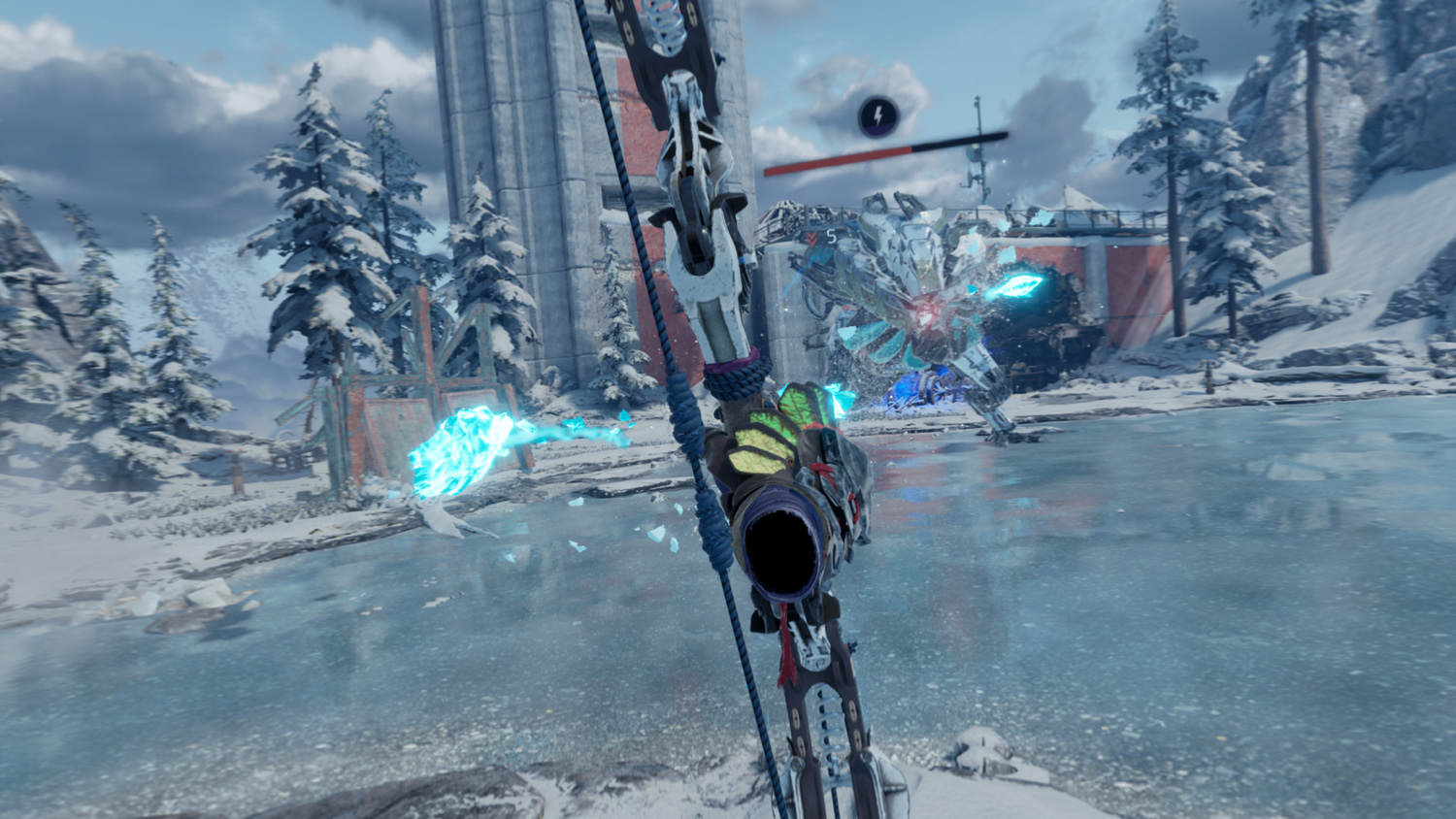
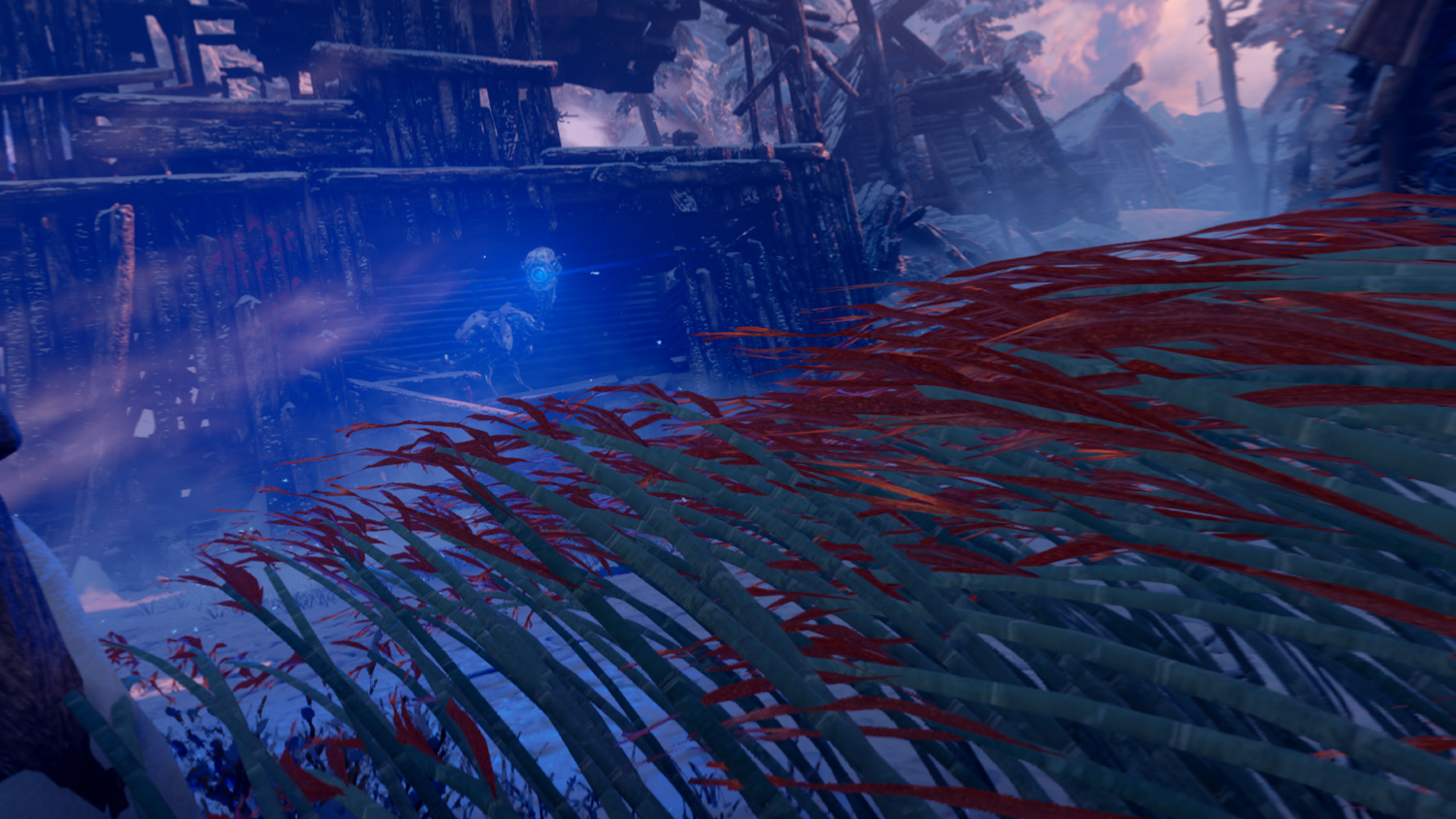
With a roughly seven-hour campaign, Call of the Mountain is considerably meatier than most single-player VR experiences, though still a far cry from Half-Life: Alyx in length, variety, and challenge. Yet because of the repetitive nature of the climbing and combat, you’re also glad it’s any longer than it is. We found it was best enjoyed in short bursts rather than playing over an intensive weekend, lest the initial excitement turns to tedium.
You have the option to replay the dozen missions upon finishing the campaign, though the story itself isn’t engaging enough to warrant a replay when you’re essentially running (or rather climbing) the same obstacles again. Only the latter chapters give you the option to approach tasks in different orders, too. For completionists, it’s a chance to shoot all the hidden targets, and find every upgrade or collectible. The latter are available to physically inspect again back in the hub.
Outside of that, you can also experience a machine safari, which plays a bit like the game’s opening section but as a standalone experience. It’s the kind of thing where you can easily put your headset on a non-gamer and just let them have a mindblowing spectacle for five minutes. There’s also a challenge hub, which naturally puts your archery and climbing skills to the test, if you aren’t already knackered by these mechanics in the story.
All round, it’s not a bad package for a launch title, and adds another dimension to the Horizon world, which is also set for a TV adaptation. Still, the £60 price point is a bit hard to swallow, considering the already high price of entry for the headset itself.
Horizon Call of the Mountain verdict
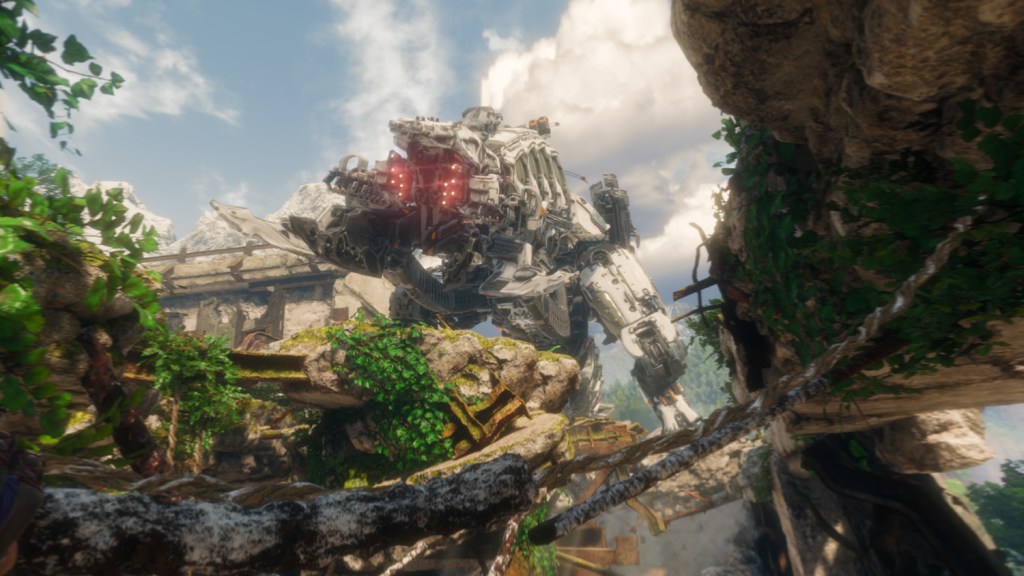
With the lack of truly new exclusive titles at launch, Call of the Mountain feels like a no-brainer, offering the polished blockbuster production values that many would hope shelling out on an expensive next-gen headset would expect. But as good as its fundamental climbing and combat gameplay feel initially, they also eventually get tiring both mechanically and physically.
It’s not a bad start compared to PSVR1’s first-year offerings though, and should be a positive sign if Sony has more first-party projects in the works that build on this. It isn’t a killer app that’s going to convince you to buy a PSVR2, but if you’ve got one and need something to show it off then this is certainly it, though you’d do well to have bought the bundle to save yourself £20.
Stuff Says…
A beautiful showcase of PSVR2’s capabilities if not substantial enough to stand on its own
Good Stuff
Gorgeous visuals
Hanging high and leaping like an action hero
Climbing and bow combat feels good…
Bad Stuff
…but gets very exhausting
Monotonous structure
Another overly talkative protagonist



